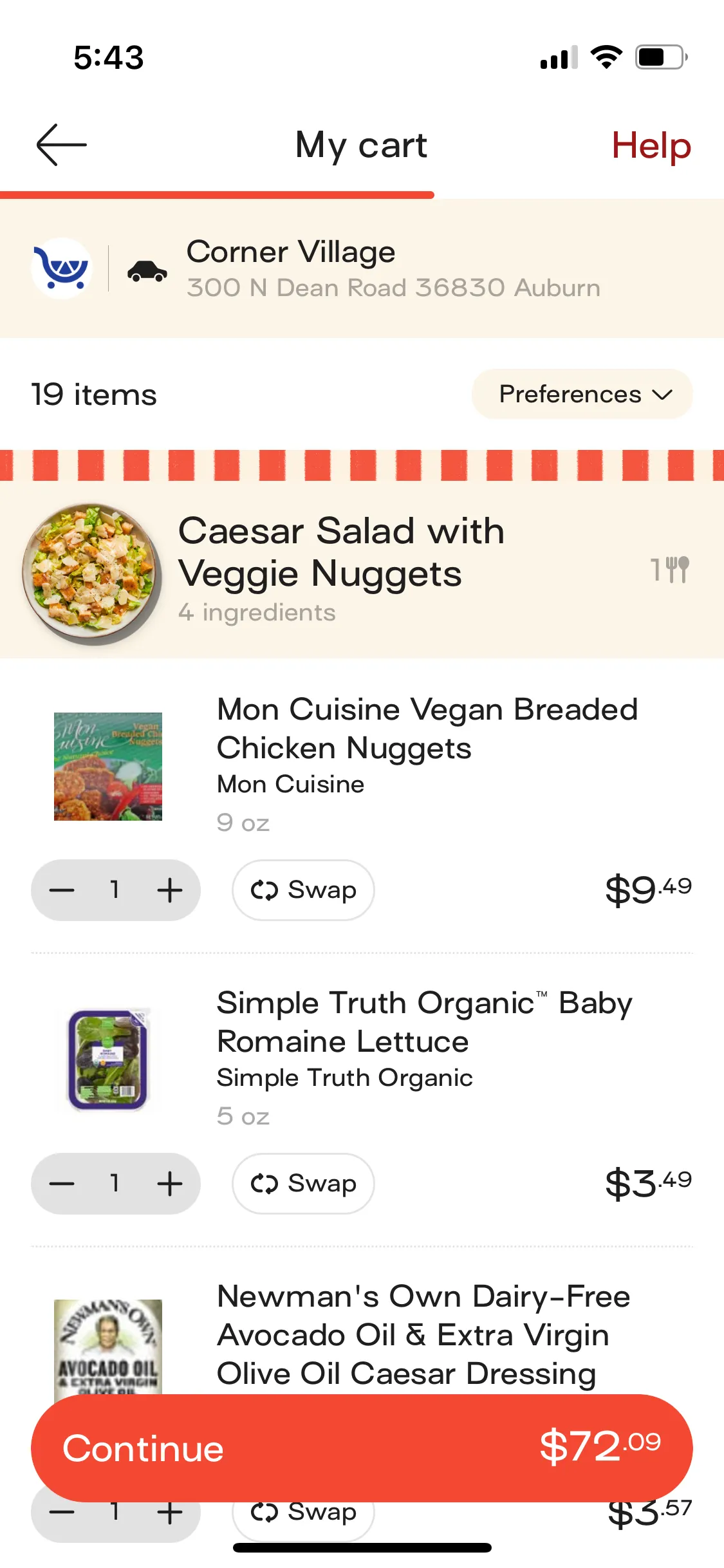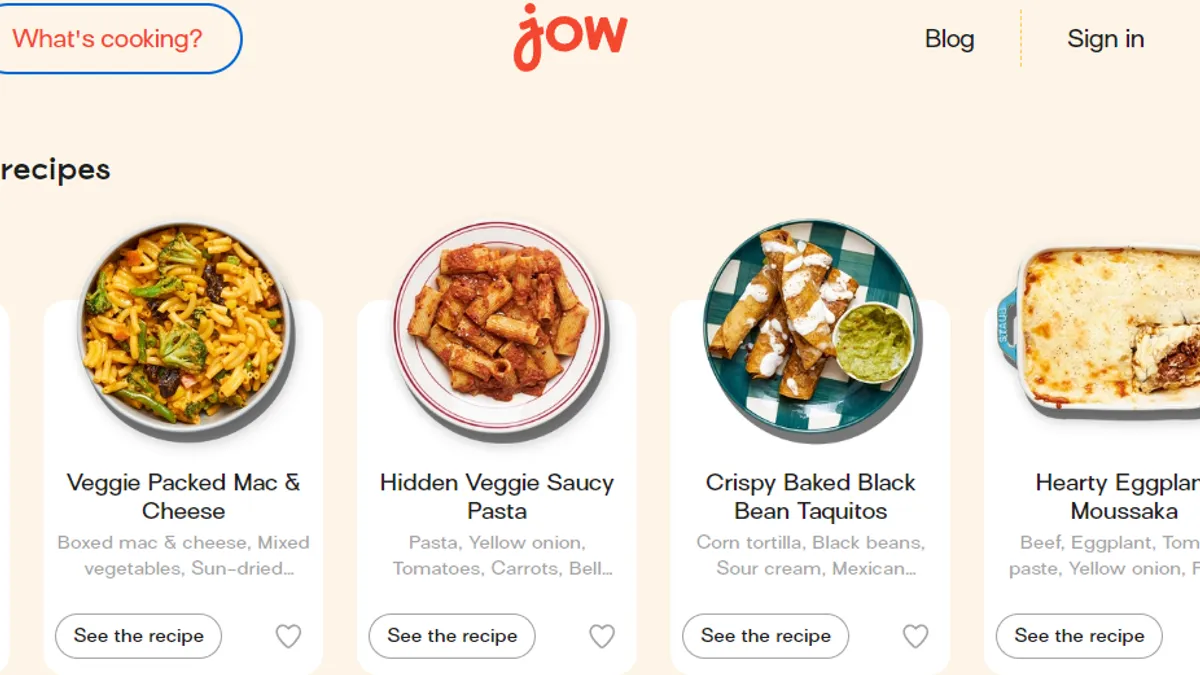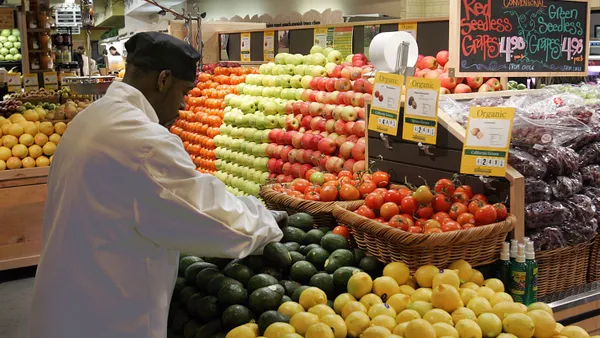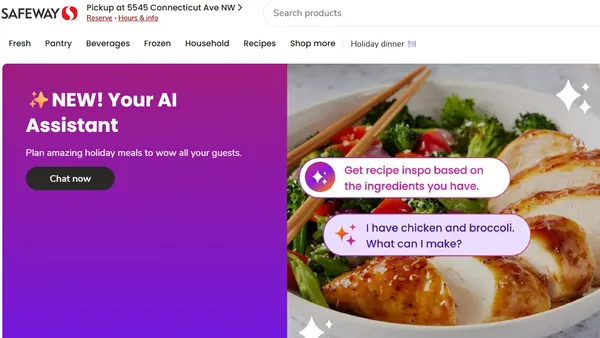Dive Brief:
- After more than a year of working with Kroger, French recipe and meal planning app Jow is deepening its presence in North America with a new funding round and upcoming retailer tie-ups, Jow CEO and co-founder Jacques-Edouard Sabatier said in an interview.
- Jow will announce Thursday a $13 million Series A extension. The French startup is using the new financing to expand its U.S. workforce, which consists of remote workers across the country and people at the company’s new New York office, Sabatier said.
- Jow’s work with Kroger and existing partners in France are helping Jow build the case that its shoppable recipe app can improve the economics of e-grocery for retailers, Sabatier said
Dive Insight:
Jow’s funding round and U.S. expansion come on the heels of recent innovation in the grocery industry around shoppable recipes and ways to improve e-commerce profitability. Jow sees itself at the intersection of both as it aims to show that shoppable meal planning can benefit grocers’ bottom lines at the same time as it satisfies desires by customers for food inspiration and convenience, Sabatier said.
When customers create an account, Jow asks them about their food preferences, household size and kitchen equipment as well as if they have any dietary restrictions. Jow then offers personalized menu recommendations that connect to customers’ online accounts with grocers.
Grocers that partner with Jow handle the e-commerce order and fulfillment.
In the U.S., Jow allows people to sync their orders with Kroger’s banners and has a “few hundred thousand users,” Sabatier said. Jow is about to launch with additional partners in the U.S. and Canada that Sabatier declined to name.
Jow’s goal is to eliminate customer fatigue associated with finding meal inspiration and then adding ingredients one by one to online carts, Sabatier said, noting that retailers’ mobile apps aren’t usually user-friendly for basket-building.

Retailers also face customer skepticism when it comes to recipes. “A recipe provided by Walmart doesn't resonate with the customers the same way as a recipe provided by Epicurious in New York even if it's strictly the same recipe,” Sabatier said.
Jow places, on average, 70% of the products in a customer’s cart at checkout and uses input from grocers to select higher margin products, Sabatier said. Jow can also tailor recipe and product options based on grocers’ inventory, saving grocers from having to offload excess inventory through coupons and discounts.
“If [a retailer] has too many products in stock or not enough product in stock, we can redirect the demand in the right direction,” Sabatier said. If a retailer has too many heads of cauliflower in stock, for instance, Jow will promote recipes that use that ingredient.
For U.S. consumers, Jow is leaning into recipes focused on “eating better at the best price” given food-as-health trends stateside, Sabatier said.
The rise of at-home meal prep during the pandemic incentivized grocers to roll out shoppable recipe tools and link with recipe sites. Walmart has experimented with several shoppable recipe tools, ranging from on-site integrations with recipe sites to a shoppable augmented reality Snapchat lens to a joint venture with Eko featuring build-their-own recipe videos. In 2020, Kroger launched Chefbot, an artificial intelligence-based digital tool that uses photos of ingredients people already have to recommend recipes.
The extension round of funding brings Jow’s total Series A to $33 million. Northzone, a new investor for Jow, led the extension round, which also included participation from existing investor Eurazeo.
Jessica Schultz, partner at Northzone and co-founder of HelloFresh, is joining Jow’s board.
In France, Jow has 6 million users and partners with eight of the largest grocery retailers in the country, including Carrefour, Auchan and Intermarché.










